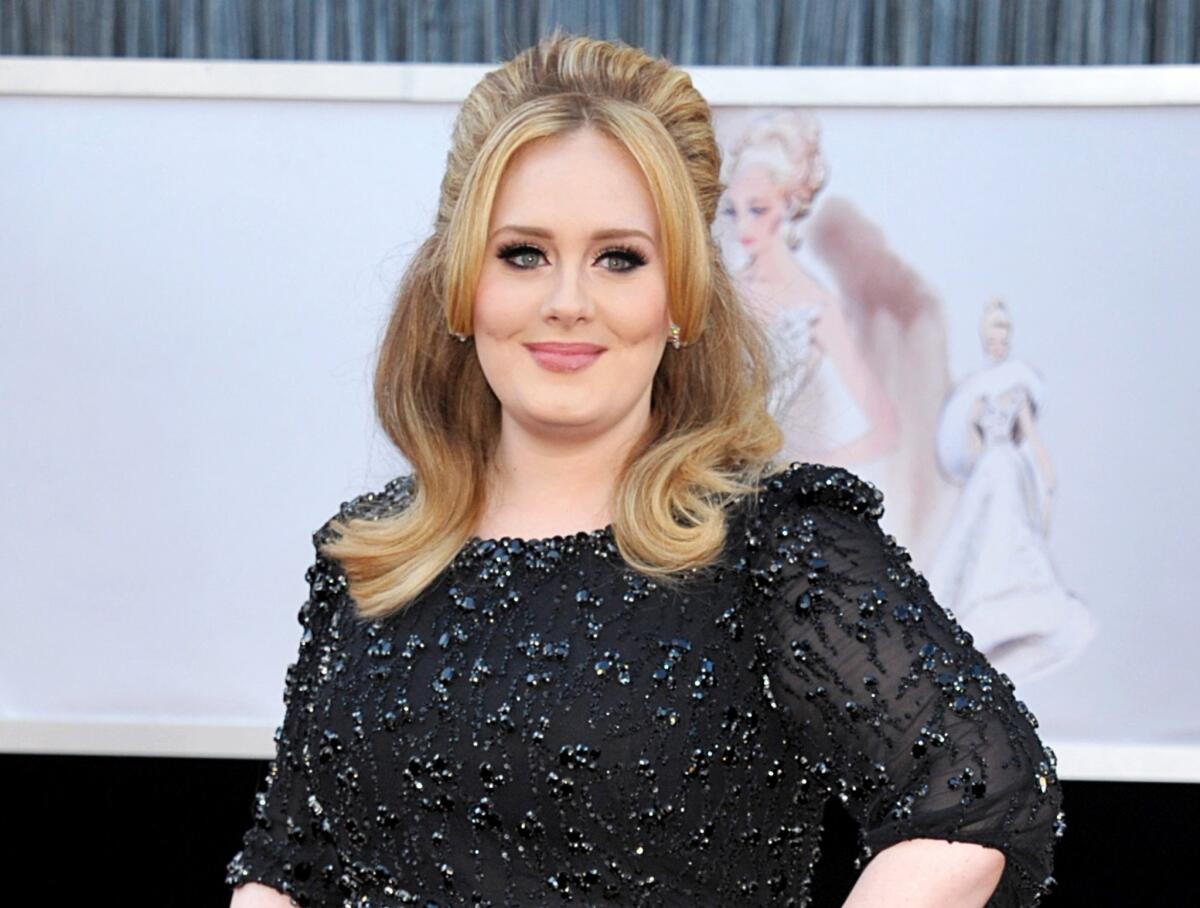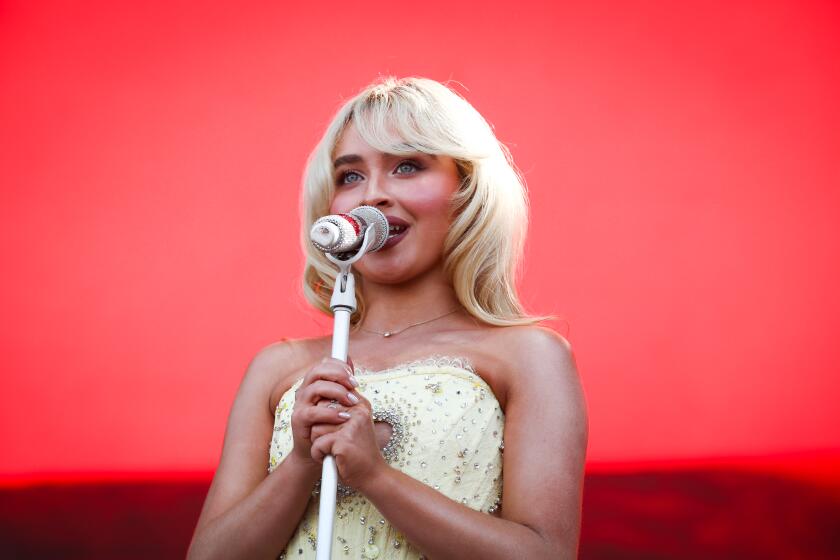Adele’s hair and bikini spark cultural-appropriation criticism — but support too

Adele, the Grammy-winning entertainer who could seemingly do no wrong, apparently has.
The British singer came under fire on Sunday and was accused of cultural appropriation after sharing an Instagram photo that featured her wearing a Jamaican-flag bikini top, Bantu knots in her hair and a carnival-inspired headdress found in Afro-Caribbean cultures.
“Happy what would be Notting Hill Carnival my beloved London,” she wrote, paying tribute to the massive community-led festival by sharing emojis of the British and Jamaican flags.
Celebrity followers including Naomi Campbell, Zoe Saldana, Tessa Thompson, Chelsea Handler and Lisa Rinna approved her look with supportive comments. Fans also applauded her significant weight loss and courage for posting a bikini photo.
However, many others did not.
The Notting Hill Carnival celebrates Caribbean culture and began in the 1960s as a children’s street fair to ease racial tensions in the area. It would have taken place Sunday and Monday this year but went virtual due to the COVID-19 pandemic.
“Whilst Notting Hill Carnival is rooted in Caribbean culture, with its Windrush-generation influence remaining strongly evident, it is at the same time characteristically ‘London’ – today’s modern London,” according to the event’s website. Performers including Jay-Z, Lil Kim, Busta Rhymes, Major Lazer and Stefflon Don have previously taken the stage at the festival.
Adele’s celebratory Instagram spurred compliments and criticism that are just as sexist as Donald Trump’s comments about Donna Reed.
The “Hello” singer’s image sparked a digital culture war in comments that touched on nuanced race relations globally and how they differ from those in the U.S. Some users harangued Adele, asked her to delete the image and compared her to Cynthia, a character from the animated series “Rugrats,” and Rachel Dolezal, the maligned former NAACP chapter president who turned out to be white.
Sports journalist Jemele Hill tweeted that “nary a person” asked for Adele’s look. BET News host and activist Marc Lamont Hill shared the photo on his Instagram account with the caption “Why?” and sparked the debate anew there.
College students in blackface. A white chef telling people how to eat Vietnamese pho.
But more positive commentary came from several people who identified as Jamaican or African.
Users on Instagram and Twitter said they appreciated Adele’s post and the celebration behind it. Others noted that her look wasn’t out of the ordinary for the diverse carnival and encouraged people to learn the context. And many observed that it was Americans who took issue with it.
“From a Jamaican... Thank you for wearing our colours , thank you for embracing our culture,” natzworldja wrote on Adele’s post.
“As a Jamaican from the U.K. I really hope she doesn’t take this down. I’m so sick of Americans projecting their problems onto the rest of the world. They need to stop!” commented ogogog333.
“For most Carribean people like myself who see this we arent upset. And the reason most African American people are upset is because it is literally illegal for black people to wear their hair how it naturally grows or in black hairstyles in certain spaces,” _nothinlessthanreal wrote. “...African Americans get so upset when people who never had to deal with those struggles wear certain black hair styles. Yes it may not be offensive to African people or Carribean people but to African Americans who still get penalized for hairstyles like this it’s upsetting.”
“Just here to let everyone know , white people telling POC how to feel about this , is in itself racist,” added deathxdesires.
Adele has not publicly commented on the debate.
More to Read
The biggest entertainment stories
Get our big stories about Hollywood, film, television, music, arts, culture and more right in your inbox as soon as they publish.
You may occasionally receive promotional content from the Los Angeles Times.










